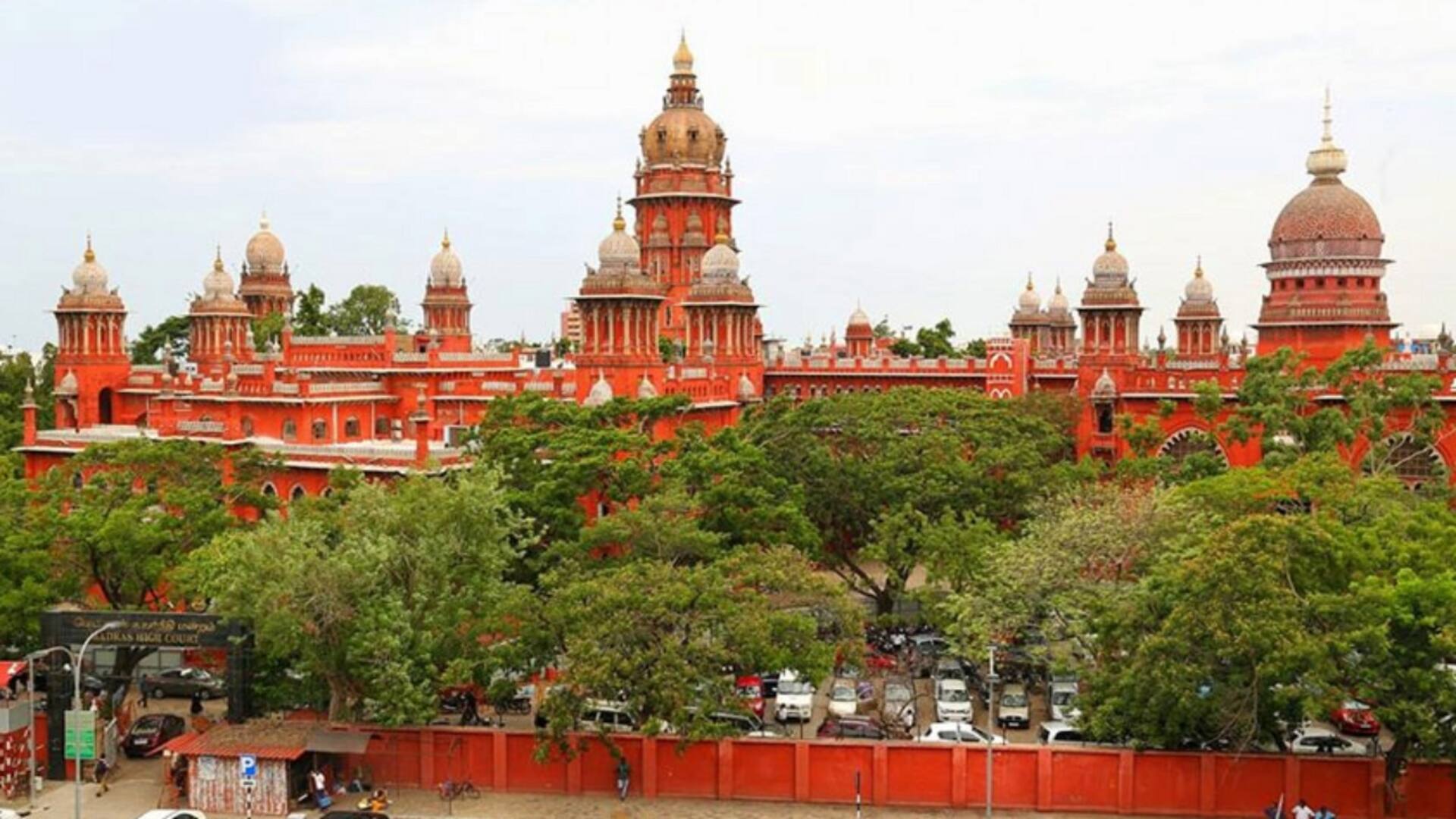
Madras High Court restricts non-Hindus from entering Tamil Nadu temples
What's the story
The Madras High Court has ordered the Tamil Nadu government to place signs at all Hindu temples in the state indicating that non-Hindus are not allowed beyond the "kodimaram" (flagpole) area. It emphasized that while religion is protected under Article 15, temples are not. The ruling was made following a petition by D Senthilkumar—the organizer of the Palani Hill Temple Devotees Organization. He requested that only Hindus be allowed to enter the Arulmigu Palani Dhandayuthapani Swamy temple and its sub-temples.
Context
Why does this story matter?
Justice S Srimathy issued the directive after Senthilkumar alleged that some non-Hindus claimed that the temple was a tourist attraction and that it was nowhere stated that non-Hindus were not permitted. After Senthilkumar filed the petition, the court said that temples are not tourist destinations, and even if one wishes to admire the temple's architecture, entry should be restricted to the kodimaram. The notice, restricting non-Hindus, was removed during renovation work for the consecration last year but wasn't put back.
In the court
Incidents of non-Hindus entering temples cited
The court cited instances of non-Hindus allegedly entering temples. One such example mentioned was of a group using the Arulmighu Brahadeeswarar Temple in Thanjavur as a picnic spot and eating non-vegetarian food on the site. In another case, a group entered the Arulmighu Meenakshi Sundareswarar Temple in Madurai with their sacred book and attempted to offer prayers near the sanctum sanctorum. The judge stated that such incidents infringe upon the fundamental rights guaranteed to Hindus under the Constitution.
Ruling
Non-Hindus must provide undertaking to enter temples
Accordingly, the court ruled that if a non-Hindu wishes to visit a specific deity in a temple, they must submit an undertaking stating their belief in the deity and their intention to follow Hindu customs and practices. Once the undertaking is received, the non-Hindu may be granted permission to enter the temple. Temple authorities are required to keep a record of these undertakings. The court emphasized that temple premises must be maintained according to agamas (temple rules), customs, and practices.
Tamil Nadu's response
State government's argument
The government's Hindu Religious and Charitable Endowments Department (HR&CE) argued that barring non-Hindus who have faith in the deity would hurt their religious sentiments and contradict their rights. It also argued that the Palani temple, described as Lord Murugan's third abode, was worshipped not just by Hindus but also non-Hindus. Rejecting their contention, Justice Srimathy observed that the authorities were concerned about the feelings of non-Hindus but failed to protect the sentiments of Hindus.